Can I Use Prozac for Insomnia?
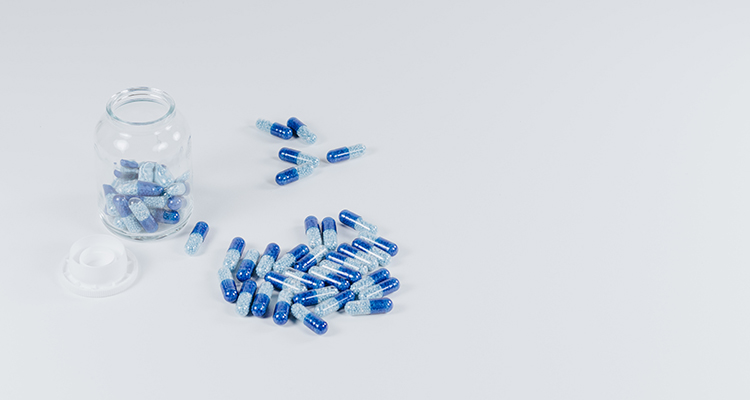
Feeling depressed and having a hard time falling asleep at night?
You’re not alone.
Millions of people throughout the world struggle with primary or secondary insomnia or “sleeplessness.” Many times, insomnia stems from chronic pain, physical discomfort, or emotional distress (i.e., depression). Unfortunately, however, finding the right treatment for what is ailing you can be challenging.
For instance, depression can prevent you from falling and staying asleep all night long. When your mind is plagued with upsetting, overpowering, or negative thoughts, it can be hard to relax and fall asleep. And, while depression can cause insomnia, the medications (antidepressants) used to treat it can also trigger a host of sleepless nights.
In fact, insomnia is a common side-effect of antidepressants, like Prozac. Because, Prozac is linked to insomnia and other side-effects, your doctor will most likely carefully weigh the “pros and cons” of it before prescribing it for your depression.
But, if you are wondering how Prozac may affect your sleep quality, keep reading because this article will provide you with the “ins and outs” of taking this antidepressant for depression.
Content
What is Depression?
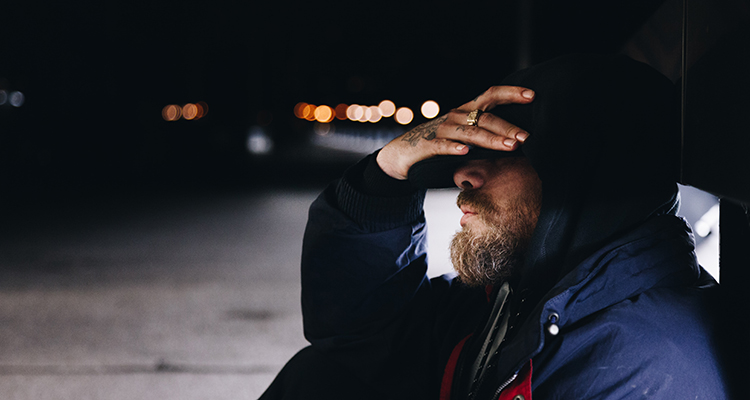
Depression, also referred to as major depressive disorder, major depression, or clinical depression, is a mood disorder that is characterized as a perpetual state of sadness, hopelessness, anger, fear, inattention, irritability, agitation, weepiness, despair, frustration, discouragement, and/or a loss of interest in things that used to be pleasurable.
Depression affects how you think, feel, and behave, triggering mental, emotional, and/or physical distress. When you suffer from depression, you may not feel like getting out of bed or bathing. You may not even want to eat or talk to or see your friends and loved ones.
You may miss work because you simply aren’t motivated to get up and go to your job. And, grocery shopping, paying bills, and performing other household and personal tasks may feel like torture. In severe cases, you may even become suicidal.
The truth is depression is not something you can just “wish or pray away” or “snap out of.” Rather, it is a real condition that usually involves more than just feeling sad (in the moment) because something didn’t go your way.
This form of depression is actually called “the blues.” It’s a temporary type of depression precipitated by an event. The “blues” usually doesn’t morph into clinical depression, although it can. The good news is depression is highly treatable. Clinical depression treatment typically requires antidepressants, like Prozac, and/or psychotherapy.
What is Prozac?

Did you know that approximately 1 in 10 Americans and 1 in 4 women in their 40s and 50s use an antidepressant, like Prozac? It’s true.
Prozac, also known by its generic name of fluoxetine, is a selective serotonin reuptake inhibitor (SSRI) or antidepressant used to treat mood disorders, such as clinical depression, bipolar disorder, postpartum depression, and PMDD or premenstrual dysphoric disorder, a severe form of premenstrual syndrome (PMS).
Prozac is marketed under the brand name, Sarafem, to treat the symptoms of PMDD – i.e., depression, anxiety, stress, and severe mood swings, sudden weight gain, bloating, and aches and pains. Sarfem is also used to treat eating disorders, like bulimia, panic attacks, and OCD (obsessive-compulsive disorder). This medication was developed in the US 1988 to treat various forms of depression. To date, it remains one of the most popular drugs on the market for depression.
How is Prozac Administered?

Prozac is available in liquid, capsule, and tablet forms. It is also available in delayed-release and long-acting capsule forms. This medication is prescribed to adults and children over the age of 10.
What is the Typical Dosage of Prozac?
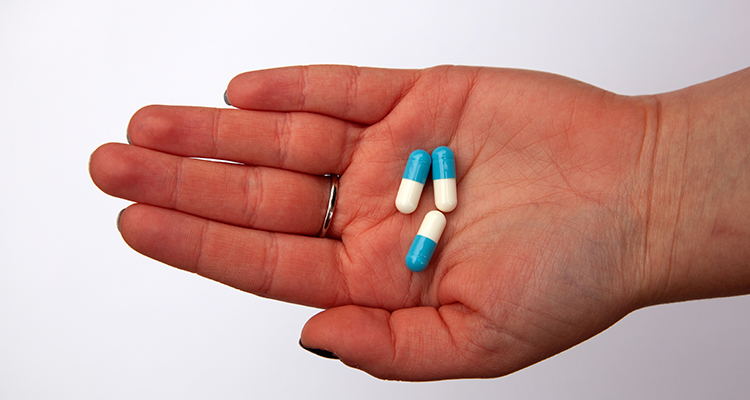
The dosage varies, deepening on the age of the individual and the ailment or condition. For instance, if you struggle with depression, your doctor may start you off with 20mg, taken every morning by mouth (once a day). He or she may increase this dosage after a few weeks, if your condition does not improve.
The typical maintenance dosage ranges from 20mg to 60mg, per day – with the maximum dosage being 80mg, per day. If your doctor prescribes the delayed-release tablet version of Prozac, he or she may prescribe 90mg, once-a-week.
Note: It can take up to 4 weeks to see noticeable improvement in your mood or condition.
Is Prozac Safe?
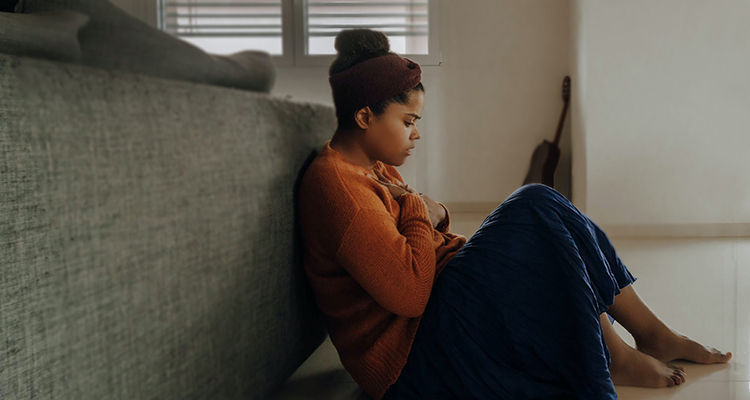
Yes, most experts consider Prozac generally safe and effective for the treatment of clinical depression, anxiety, bulimia, and OCD.
What are the Side-Effects of Prozac?
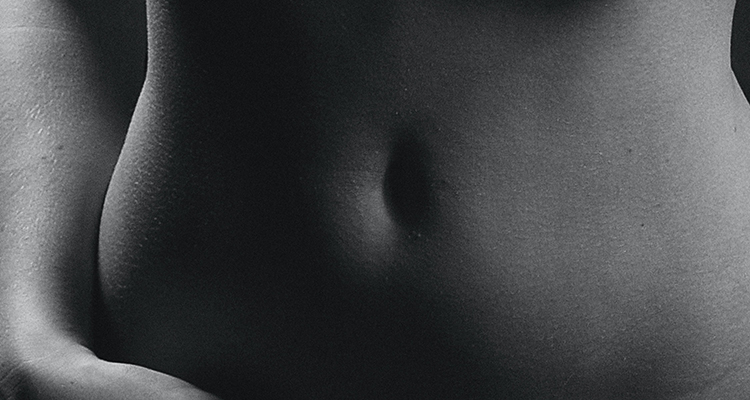
Prozac can cause the following side-effects:
- Gastrointestinal Distress – The most common side-effect of Prozac is gastrointestinal distress (nausea and vomiting, diarrhea, and upset stomach). Prozac increases the amount of serotonin in your brain and gut (the areas that have the most serotonin receptors).
Increased serotonin can negatively affect your digestive system, leading to gastrointestinal problems. This side-effect usually appears during the initial weeks or months of treatment, and can be mitigated by taking a lower dose or taking the medication with a meal.
- Suicidal Ideation – Antidepressants, like Prozac, are designed to stabilize your mood, so you feel better, emotionally, however, in some cases, antidepressants can trigger suicidal ideation (suicidal thoughts and attempts). In other words, it may worsen depression – in some people.
- Low Libido or Sexual Dysfunction – If you take Prozac, you may experience low libido (low sex drive) or sexual dysfunction. This side-effect usually appears once you’ve been on the medication for a while. Keep in mind that the higher the dosage, the more likely you will experience this side-effect after a while.
Sexual side-effects can occur in women or men and may involve the following: a low or reduce sex drive, a decline in genital sensations, erectile dysfunction or impotence, or orgasm disorders or premature ejaculation. At this time, experts are unsure why people on antidepressants, like Prozac, experience this side-effect.
- Increased Hunger and Weight Gain – A 2014 study found that people, taking Prozac gained about 1.5lbs over the course of a year. So, if you are using Prozac, you may become hungrier than usual, and, as a result, you may experience weight gain.
- Sodium Deficiency – Prozac may affect your kidneys, causing them to eliminate larger amounts of sodium. This can lead to a sodium deficiency. Symptoms of low sodium can include headaches/migraines, mental confusion, slurred speech or speech problems, and overall weakness.
- Frequent or Abnormal Bruising and Bleeding – Prozac may also cause your platelet levels (blood cells that stop bleeding) to decline. Thus, there is an increased risk of bruising and bleeding while on this medication. This side-effect primarily affects older adults; however, younger people can also experience increased bruising and bleeding.
- Insomnia – If you take Prozac, you may have a hard time falling and staying asleep all night long. It may also negatively affect your overall sleep quality. Prozac affects your brain, which mean it can cause hyperarousal, manifesting in strange dreams or nightmares, night terrors, an inability to fall asleep or to stay asleep, frequent tossing-and-turning, and/or severe nighttime hot flashes.
Other possible side-effects may include:
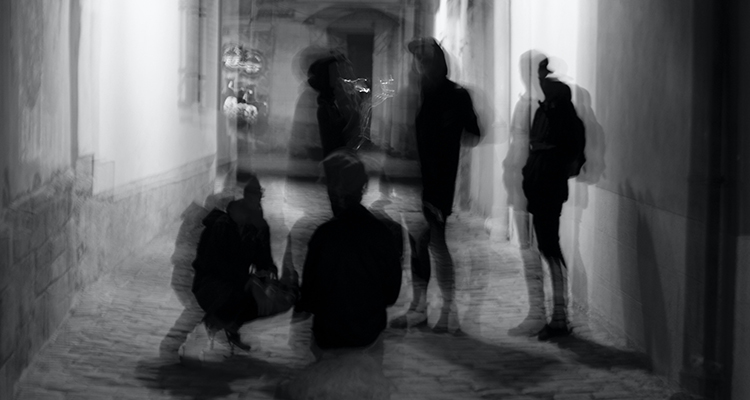
- Reduced libido (low sex drive) or sexual dysfunction
- Excessive worry, anxiousness, or nervousness
- Strange dreams or nightmares or night terrors
- Excessive perspiration (sweating)
- Upset stomach, diarrhea, or nausea or vomiting
- General weakness
- Skin rashes
- “Shakiness” or tremors
- Flu-like symptoms
- Insomnia or “sleeplessness”
- Drowsiness or grogginess
- Sinus problems
- Painful or difficult digestion
- Dry “cotton” mouth
- Widened blood vessels
Note: Do not combine monoamine oxidase inhibitors (MAOIs) with Prozac. Stopping Prozac use should be a gradual process. Stopping too quickly can lead to Prozac withdrawal symptoms.
Can Prozac Make You Feel Suicidal?
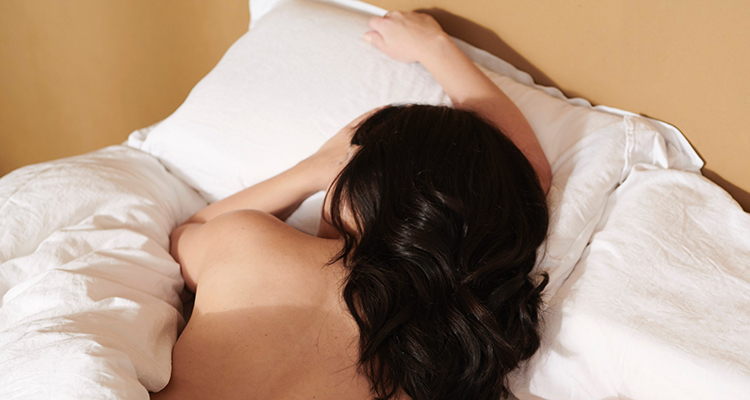
Yes, it is possible.
In fact, the FDA has issued a “black box warning” for Prozac. This warning alerts users that there is an increased risk of suicidal ideation (suicidal thoughts and attempts) in people under the age of 25.
Is Prozac Associated with Any Long-Term Complications?
Yes!

Prozac is not considered to be addictive; however, stopping it too quickly can cause a host of withdrawal symptoms such as:
- Apprehension or anxiety
- Insomnia or sleepiness
- Sexual dysfunction
- Queasiness
- Headache/migraines
- Upset stomach
- Anger
- Involuntary muscle twitching or jerking
- Long-term tardive dyskinesia (spontaneous face, trunk, and/or extremity movements)
- Hypnic jerks also known as “sleep starts” (jerky movements that occur as you begin to fall asleep)
- Negative changes in your brain function and/or delayed or irregular brain development
- Movement disorders like Parkinson’s disease
- Prozac dependency
Note: Keep in mind that your risk of side-effects and complications rises the longer you take Prozac. Chronic use of Prozac can also lead to a “blunted emotional response,” severe mood swings, extreme anxiety, unrest, insomnia, impatience, uneasiness, and apprehension – with the highest risk in those, who take the highest doses of Prozac.
How is Prozac Connected to Sleep?

To clearly understand the link between Prozac and sleep, it is important to explore how Prozac impacts your brain and your circadian rhythm (internal clock).
Falling asleep requires more than simply being tired. You can be tired and still be unable to fall and stay asleep all night. The truth is anything can prevent you from falling asleep or awaken you from sleep – noise, smells, light, hunger, pain, heat or coldness, illness, a restless companion or spouse, emotional turmoil (anxiety or depression), etc. Thus, sleep can be fleeting.
Researchers have found that depression and insomnia are linked. In fact, insomnia is a common symptom of depression. And, the less you sleep, the higher your risk of depression. Sleep deprivation can also trigger mood swings, increasing your risk of anxiety and depression.
Sleep deprivation also causes your amygdala (the part in your brain that regulates your emotions) to become hypersensitive. As a result, you are more likely to overreact to certain stimuli, triggering or worsening depression.
Thus, researchers have concluded that your amygdala is a major factor in the development of insomnia and that people, who suffer from chronic insomnia have a 10x greater risk of also developing depression. So, the general consensus is that the more intense the depression, the higher the risk of experiencing a sleep disorder.
Studies also indicate that there is a link between depression and obstructive sleep apnea. A 2002 study found that people with depression are 5x more likely to suffer from breathing disorders, like sleep apnea, that can affect their sleep quality.
Although, it would appear that antidepressants, like Prozac, would help people with depression sleep better at night, because they are designed to stabilize your mood, it often has the opposite effect. In fact, most antidepressants, including Prozac, stimulate your mind and body, instead of sedating it. That is how Prozac is connected to sleep – or rather insomnia. It can trigger or worsen sleep problems.
Can Prozac Help with Sleep?

Possibly – but unlikely.
For most people, Prozac can be stimulating, preventing them from falling and staying asleep at night. However, for some, it causes sleepiness, grogginess, fatigue, and drowsiness. Prozac affects people in different ways. As a result, doctors often prescribe sedative medications to use with Prozac when insomnia arises.
These sedatives may be used in conjunction with psychotherapy, prescription sleeping pills, and natural insomnia treatment programs, like Somnus Therapy, that use CBT-I, guided sleep meditation, audio experiences, etc.
If your doctor prescribes prescription sleeping pills to take with Prozac, it is likely for a short time. Prescription sleeping pills are highly addictive, so most doctors prescribe them only when absolutely necessary. Moreover, sleeping pills depress or slow your breathing, which could be life-threating for someone, who struggles with depression and sleep apnea. So, if you suffer from both of these conditions Prozac may not be right for you.
Is Insomnia Common with Prozac?
Yes, it is.
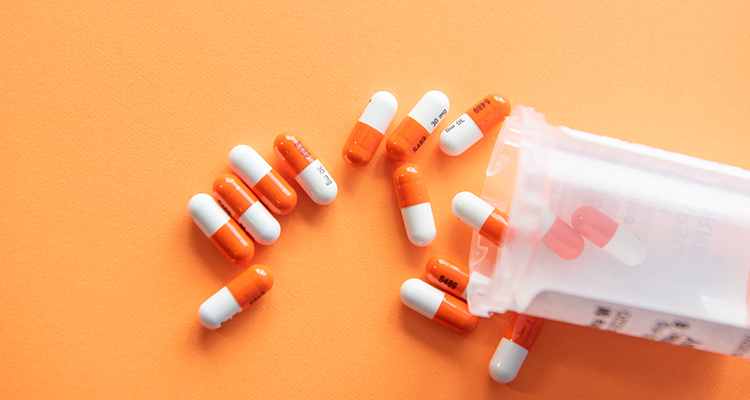
One of the most common side-effects of antidepressants or SSRIs (selective serotonin reuptake inhibitors), including Prozac, is insomnia. In fact, many Prozac users report having poor sleep quality and daytime drowsiness while on the medication.
According to researchers, Prozac may produce a sedating effect in the body or it may produce a stimulating one. It just depends on the person, the dosage, and his or her body chemistry. However, most researchers have found that for the majority of users, Prozac causes a decline in quality sleep, frequent nighttime wake-ups, and disrupted REM (rapid eye movement) sleep. REM sleep is important because it helps you enter a deeper sleep.
Will Prozac-Based Insomnia Eventually Go Away?

Possibly.
The truth is it may take a while before you start sleeping better at night. In fact, it may take weeks, if not months or years before you notice improvement in your sleep quality. And, while this may seem distressing, there are ways to reduce or even eliminate Prozac-based insomnia.
For instance, you may want to consider taking this medication in the mornings. Remember, Prozac can be stimulating for some people, so taking it too close to bedtime may keep you up at night. By taking it in the mornings, it has plenty of time to work through your system and diminish enough to allow you to fall and stay asleep at night.
Do All Antidepressants Cause Insomnia or Just Prozac?
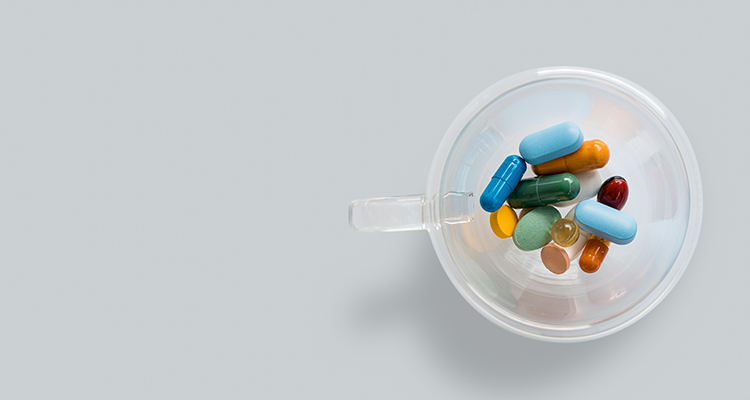
No, not all antidepressants cause insomnia.
Tricyclic antidepressants (amitriptyline (Elavil), desipramine (Norpramin), imipramine (Tofranil), nortriptyline (Pamelor), and protriptyline (Vivactil)) can be beneficial, if you tried Prozac, but it caused insomnia. These antidepressants can also be beneficial, if you suffer from depression-related insomnia. Tricyclic antidepressants have sedative effects that can help you get some much-needed zzz. Keep in mind, however, that these antidepressants may also elevate your blood pressure, cause weight gain, and give you dry “cotton” mouth.
Are There Natural Ways to Get Some Sleep While Taking Prozac?
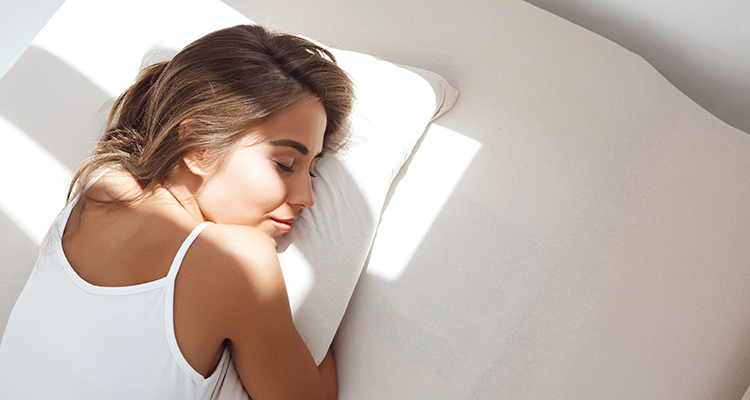
Yes!
There are several ways you can get some sleep while taking Prozac, such as:
- Reading – Reading a soothing or slow-paced book before bed may trigger sleepiness.
- Exercising – Getting regular exercise can “tire you out” so you’re ready for bed when the time arises.
- Adopting a healthy diet – Fatty, salty, and sugary foods can cause you to feel bloated, tired, and just all-around icky. Eating these foods before bedtime can cause you to toss-and-turn, making it hard for you to fall and stay asleep. Healthy foods, on the other hand, digest quicker, reducing your risk of bloat and gastrointestinal distress.
- Meditating – Mediating or repeating mantras can help you focus on your breathing. It can also help you block out negative or upsetting thoughts and quiet your racing mind, so you can relax and fall asleep.
- Developing a consistent bedtime routine and sleep schedule – Following a bedtime routine and designating a sleep and wake time can train your mind and body to fall asleep and awaken at a certain time each day.
- Investing in an online sleep program – Sleep programs, like Somnus Therapy, can help you recoup the sleep you’ve been missing through CBT-I methods, cognitive restructuring, and guided mediation – all from the comfort of your bed!
Summary
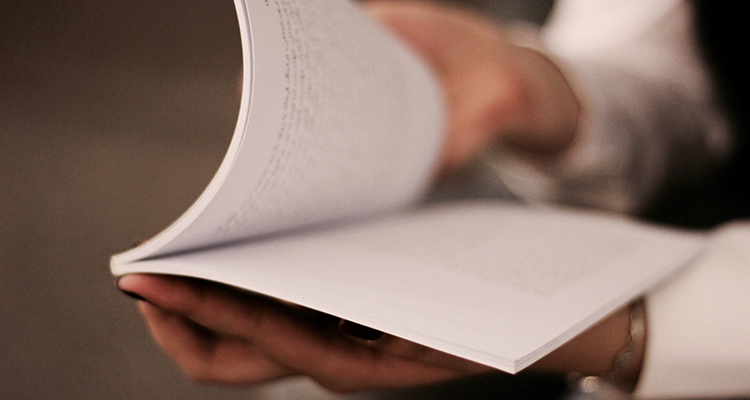
For many, Prozac is the go-to medication for depression and other “off label” conditions; however, if you suffer from depression, there is a chance it could keep you up at night. In other words, some people report feeling sleepy while on Prozac, while others report feeling energized.
Being depressed and being unable to sleep doesn’t bode well in the long run – for your mental or physical health. It doesn’t matter if your insomnia stems from your depression or if it is a side-effect of the medication, not getting enough sleep or getting poor quality sleep is bound to make you feel worse than you already feel.
So, if you are taking Prozac and you haven’t been able to get an ounce of sleep in days or weeks, follow the tips listed above and contact your doctor for guidance. You’ll never have the strength to conquer your depression, if you are “worn out” from sleep deprivation. The good news is you don’t have to suffer in silence – there is help out there for you!
References
WebMD. (2000). FDA approves Prozac for treating severe form of PMS. Retrieved from https://www.webmd.com/women/pms/news/20000706/fda-approves-prozac-for-treating-severe-form-of-pms#:~:text=Prozac%20is%20now%20also%20the%20first%20and%20only,spokeswoman%20for%20Eli%20Lilly%2C%20which%20makes%20the%20drug
NPR. (2011). Look around: 1 in 10 Americans takes antidepressants. Retrieved from https://www.npr.org/sections/health-shots/2011/10/20/141544135/look-around-1-in-10-americans-take-antidepressants
Drugs.com. (2021). Prozac. Retrieved from https://www.drugs.com/prozac.html
Blumenthal, S. R., Castro, V. M., Clements, C. C., et al. (2014). An electronic health records study of long-term weight gain following antidepressant use. JAMA Psychiatry, 71(8), 889–896. Retrieved from https://jamanetwork.com/journals/jamapsychiatry/fullarticle/1878922
Mayo Clinic. (2021). Depression (major depressive disorder). Retrieved from https://www.mayoclinic.org/diseases-conditions/depression/symptoms-causes/syc-20356007
US Food and Drug Administration. (2014). Fluoxetine (marketed as Prozac) information. Retrieved from https://www.fda.gov/drugs/postmarket-drug-safety-information-patients-and-providers/fluoxetine-marketed-prozac-information
Dubovsky, S. L., & Thomas, M. (1996). Tardive dyskinesia associated with fluoxetine. Psychiatric Services, 47(9), 991-3. Retrieved from https://pubmed.ncbi.nlm.nih.gov/8875667/
Lana, L. (2020). What are hypnic jerks? Sleep.org. Retrieved from https://www.sleep.org/hypnic-jerks/
Beasley, C. M., Sayler, M. E., Bosomworth, J. C., & Wernicke, J. F. (1991). High-dose fluoxetine. Journal of Clinical Psychopharmacology, 11(3), 166-174. Retrieved from https://journals.lww.com/psychopharmacology/Abstract/1991/06000/High_Dose_Fluoxetine__Efficacy_and.4.aspx
Antonuccio, D., Burns, D., & Danton, W. (2002). Antidepressants: A triumph of marketing over science? Prevention & Treatment, 5. Retrieved from https://www.researchgate.net/publication/232442671_Antidepressants_A_triumph_of_marketing_over_science
Gerber, P. & Lynd, L. (1998). Selective serotonin-reuptake inhibitor-induced movement disorders. The Annals of Pharmacotherapy, 32, 692-698. Retrieved from https://www.researchgate.net/publication/13643141_Gerber_PE_Lynd_LD_Selective_serotonin-reuptake_inhibitor-induced_movement_disorders_Ann_Pharmacother_32_692-698
Hobzova, M., Prasko, J., Vanek, J., Ociskova, M., Genzor, S., Holubova, M., Grambal, A., & Latalova, K. (2017). Depression and obstructive sleep apnea. Neuro Endocrinol Lett, 38(5), 343-352. Retrieved from https://pubmed.ncbi.nlm.nih.gov/29106789/
DeSouza, K. (2020). Anxiety and depression due to sleep deprivation? Exploring the links between lack of sleep and mental health. Neuropathic Currents. Retrieved from https://www.naturopathiccurrents.com/index.php/article/sleep-deprivation
Saghir, Z., Syeda, J. N., Muhammad, A. S., & Balla, A. T. H. (2018). The amygdala, sleep debt, sleep deprivation, and the emotion of anger: A possible connection? Cureus, 10(7), e2912. Retrieved from https://pubmed.ncbi.nlm.nih.gov/30186717/
Rihm, J. S., Menz, M. M., Schultz, H., Bruder, L., Schilbach, L., Schmid, S. M., & Peters, J. (2019). Sleep deprivation selectively upregulates an amygdala-hypothalamic circuit involved in food reward. J Neuroscience, 39(5), 888-899. Retrieved from https://pubmed.ncbi.nlm.nih.gov/30559151/
Kwiatkowska, B., Kłak, A., Raciborski, F., & Maślińska, M. (2019). The prevalence of depression and insomnia symptoms among patients with rheumatoid arthritis and osteoarthritis in Poland: a case control study. Psychol Health Medicine, 24(3), 333-343. Retrieved from https://pubmed.ncbi.nlm.nih.gov/30286609/
Newsom, R. (2021). Cognitive behavioral therapy for insomnia (CBT-I). Sleep Foundation. Retrieved from https://www.sleepfoundation.org/insomnia/treatment/cognitive-behavioral-therapy-insomnia
Wichniak, A., Wierzbicka, A., Walęcka, M., & Jernajczyk, W. (2017). Effects of antidepressants on sleep. Current psychiatry Reports, 19(9), 63. Retrieved from https://doi.org/10.1007/s11920-017-0816-4
Liu, Y., Xu, X., Dong, M., Jia, S., & Wei, Y. (2017). Treatment of insomnia with tricyclic antidepressants: a meta-analysis of polysomnographic randomized controlled trials. Sleep Medicine, 34, 126-133. Retrieved from https://pubmed.ncbi.nlm.nih.gov/28522080/
Somnus Therapy. (2021). The Somnus program. Retrieved from https://somnustherapy.com/
Nordqvist, J. (2017). What is Prozac (fluoxetine)? Medical News Today. Retrieved from https://www.medicalnewstoday.com/articles/263773




















